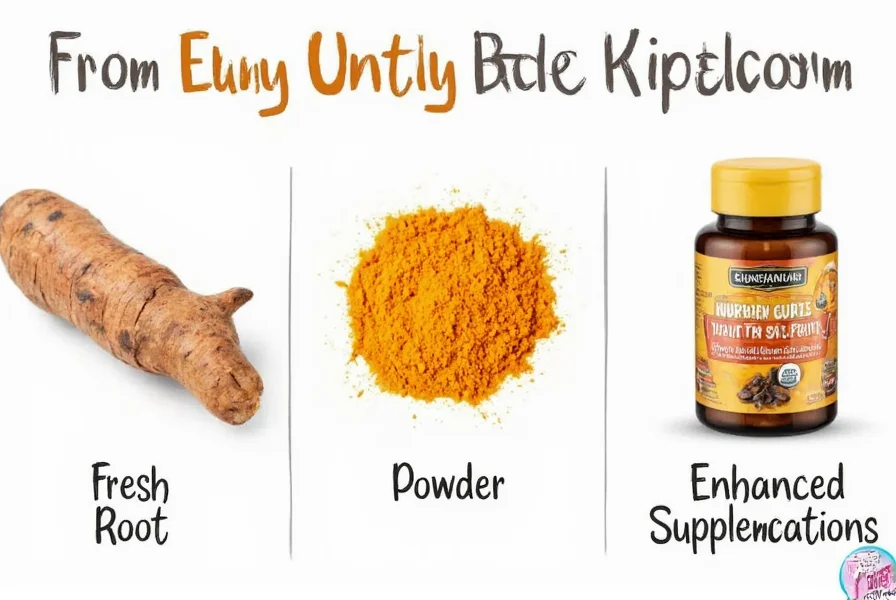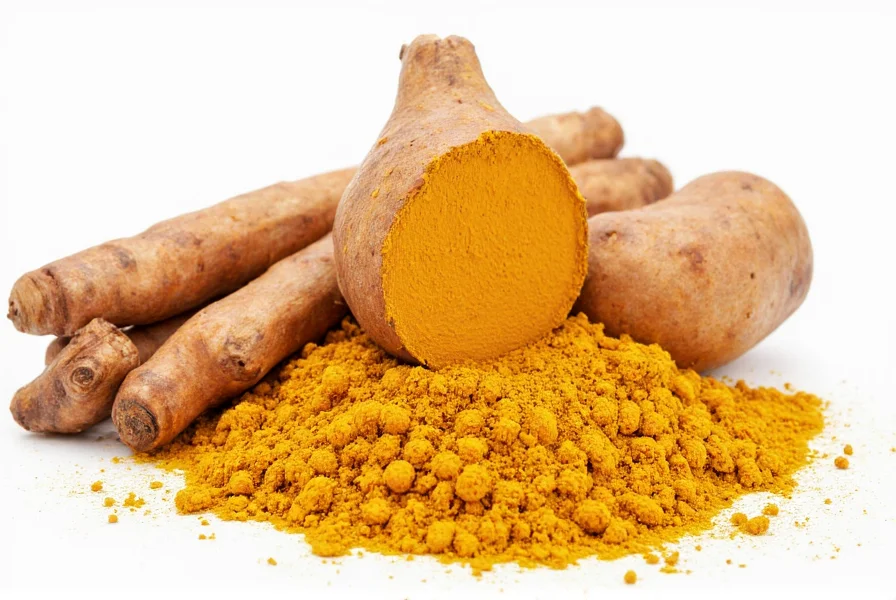For individuals exploring natural approaches to cholesterol management, turmeric has gained significant attention in recent years. This vibrant yellow spice, a staple in traditional Ayurvedic and Chinese medicine for centuries, contains curcumin—the compound responsible for most of its studied health effects. Understanding the relationship between turmeric cholesterol benefits requires examining both the promising research and its limitations.
The Science Behind Turmeric's Potential Cholesterol Effects
Curcumin, turmeric's primary bioactive component, demonstrates several mechanisms that could influence cholesterol metabolism. Its potent anti-inflammatory and antioxidant properties may help reduce oxidative stress that contributes to atherosclerosis. Research published in Nutrition Journal suggests curcumin inhibits cholesterol absorption in the gut while enhancing its elimination through bile. Additionally, studies indicate it may upregulate LDL receptors in the liver, improving clearance of LDL cholesterol from the bloodstream.
However, turmeric's effectiveness is complicated by its notoriously poor bioavailability. When consumed as regular culinary turmeric, only a small fraction of curcumin enters the bloodstream. Most clinical trials showing cholesterol benefits use enhanced formulations, often combined with piperine (from black pepper) which can increase absorption by up to 2,000%. This distinction between regular turmeric versus supplements for cholesterol is critical when evaluating research findings.
What Does the Clinical Evidence Show?
A 2022 meta-analysis in Phytotherapy Research reviewed 15 randomized controlled trials involving 1,100 participants. The analysis found that curcumin supplementation significantly reduced total cholesterol (by 7.8 mg/dL), LDL cholesterol (by 9.3 mg/dL), and triglycerides (by 18.2 mg/dL), while increasing HDL cholesterol (by 2.4 mg/dL) compared to placebo. However, the researchers noted substantial variability between studies and called for larger, longer-term trials.
| Study | Participants | Dosage & Duration | Key Cholesterol Findings |
|---|---|---|---|
| Panahi et al. (2016) | 79 with metabolic syndrome | 1g/day curcumin for 8 weeks | LDL ↓ 12.1%, Triglycerides ↓ 15.8% |
| Zhang et al. (2020) | 120 with type 2 diabetes | 2g/day curcumin for 12 weeks | LDL ↓ 8.7%, HDL ↑ 5.3% |
| Fernandez et al. (2019) | 90 with mild hypercholesterolemia | 500mg/day curcumin for 12 weeks | No significant changes |
| Di Pierro et al. (2015) | 60 with metabolic syndrome | 800mg/day phytosome curcumin for 8 weeks | LDL ↓ 14.7%, Triglycerides ↓ 21.3% |
The variability in research outcomes highlights important considerations about how turmeric affects cholesterol levels differently across populations. Studies using enhanced curcumin formulations (like phytosomes or with piperine) generally show more consistent benefits than those using standard turmeric powder. Additionally, effects appear more pronounced in individuals with metabolic syndrome, diabetes, or existing elevated cholesterol levels compared to those with normal lipid profiles.
Turmeric Compared to Conventional Cholesterol Treatments
When evaluating turmeric as natural cholesterol remedy, it's essential to understand how it compares to established treatments. Statins, the most commonly prescribed cholesterol medications, typically reduce LDL cholesterol by 30-50%—significantly more than the modest 5-15% reductions seen with turmeric in most studies. However, turmeric generally has fewer side effects than statins, which can cause muscle pain, liver issues, and other complications in some patients.
Research suggests turmeric may work through different mechanisms than statins, potentially making it a complementary approach rather than a replacement. A 2021 study in Complementary Therapies in Medicine found that combining curcumin with low-dose statins produced better lipid improvements than statins alone, with fewer reported side effects. This indicates potential for turmeric and cholesterol medication combination under medical supervision.
Practical Guidance for Using Turmeric
For those considering turmeric for cholesterol management, several practical factors matter. Most clinical trials showing benefits used doses between 500-2,000 mg of curcumin daily, often in divided doses. Since regular turmeric contains only about 3% curcumin by weight, achieving these doses through culinary use alone would require consuming impractical amounts (15-60 grams daily).
When selecting supplements, look for formulations designed to enhance bioavailability, such as those containing piperine, phospholipids, or nanoparticles. Be aware that how to take turmeric for cholesterol matters—taking it with healthy fats can improve absorption, as curcumin is fat-soluble. Consistency is also key, as benefits typically develop over 8-12 weeks of regular use.
Important safety considerations include potential interactions with blood thinners and diabetes medications. Turmeric may enhance the effects of these drugs, potentially causing complications. Individuals with gallbladder issues should also exercise caution, as turmeric can stimulate bile production. Always consult your healthcare provider before using turmeric supplements, especially if you have existing health conditions or take medications.

Realistic Expectations and Next Steps
While the research on turmeric's effect on cholesterol levels is promising, it's crucial to maintain realistic expectations. Turmeric should be viewed as one component of a comprehensive cholesterol management strategy that includes a heart-healthy diet, regular exercise, and appropriate medical care when needed. The modest improvements seen in studies won't replace the need for medication in individuals with significantly elevated cholesterol or high cardiovascular risk.
If you're interested in trying turmeric for cholesterol support, discuss it with your healthcare provider first. They can help determine if it's appropriate for your specific situation and monitor your lipid levels to assess effectiveness. Remember that dietary supplements aren't regulated as strictly as medications, so choosing reputable brands with third-party testing is essential for quality and safety.
Frequently Asked Questions
How much turmeric should I take for cholesterol improvement?
Most clinical studies showing cholesterol benefits used 500-2,000 mg of curcumin daily, typically in divided doses. Since regular turmeric contains only about 3% curcumin, supplements are usually necessary to achieve these doses. Always consult your healthcare provider for personalized recommendations based on your health status and goals.
How long does it take for turmeric to lower cholesterol?
Research suggests it typically takes 8-12 weeks of consistent daily use to see potential cholesterol improvements from turmeric supplementation. Most clinical trials measured lipid changes after 8-12 weeks of regular use. Individual results may vary based on dosage, formulation, and personal health factors.
Can I take turmeric instead of cholesterol medication?
No, turmeric should not be used as a replacement for prescribed cholesterol medications without consulting your healthcare provider. While some studies show modest benefits, turmeric's effects are significantly less than medications like statins. For individuals with high cardiovascular risk or significantly elevated cholesterol, medication may be necessary. Turmeric might potentially be used as a complementary approach under medical supervision.
Does golden milk help lower cholesterol?
Traditional golden milk (turmeric in milk) likely provides minimal cholesterol benefits due to the low curcumin content in culinary turmeric and poor bioavailability. Most studies showing cholesterol improvements used enhanced curcumin supplements providing 500-2,000 mg daily. While golden milk may offer other health benefits, don't expect significant cholesterol improvements from regular consumption alone.
Are there any side effects of using turmeric for cholesterol?
Turmeric is generally safe at culinary doses, but higher supplement doses may cause digestive issues in some people. More importantly, turmeric can interact with blood thinners, diabetes medications, and drugs metabolized by certain liver enzymes. It may also stimulate gallbladder contractions, so those with gallstones should use caution. Always consult your healthcare provider before starting turmeric supplements, especially if you have health conditions or take medications.











 浙公网安备
33010002000092号
浙公网安备
33010002000092号 浙B2-20120091-4
浙B2-20120091-4